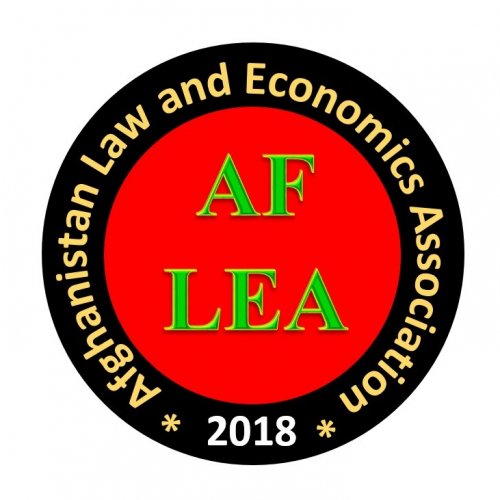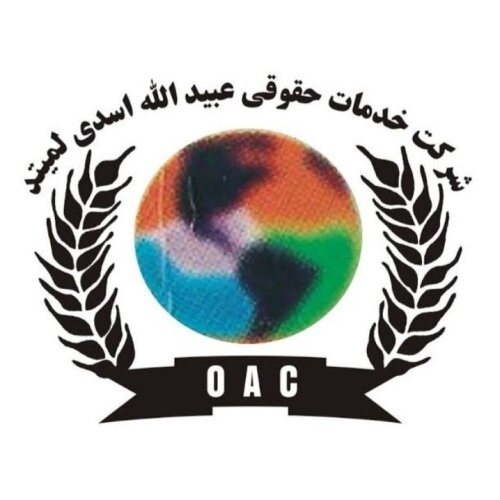Best Animal Law Lawyers in Afghanistan
Share your needs with us, get contacted by law firms.
Free. Takes 2 min.
Or refine your search by selecting a city:
List of the best lawyers in Afghanistan
About Animal Law in Afghanistan
Animal Law in Afghanistan deals with regulations and legal considerations regarding the treatment, health, and rights of animals within the country. While not as developed as in some other nations, there are emerging efforts to ensure animals are protected and treated humanely. The focus often lies in preventing animal cruelty and controlling diseases that can affect both animals and humans.
Why You May Need a Lawyer
There are several situations where you might require legal advice in the field of Animal Law in Afghanistan. These include, but are not limited to, the following:
- Addressing cases of animal cruelty or neglect.
- Disputes involving animal ownership or custody.
- Public health concerns related to animal-borne diseases.
- Issues surrounding the importation or exportation of animals.
- Advocating for animal welfare legislation or policy.
Local Laws Overview
The legal framework surrounding Animal Law in Afghanistan involves several key aspects:
- The prevention of animal cruelty: Although Afghanistan does not have comprehensive animal welfare laws, there are basic guidelines to prevent abuse and neglect.
- Livestock regulations: As a country where livestock plays a significant role in the economy, there are rules to manage their health and trade.
- Import and export laws: Specific regulations govern the movement of animals across borders to control disease and meet international standards.
- Municipal regulations: Local governments may have additional rules regarding the management and treatment of animals, particularly in urban areas.
Frequently Asked Questions
1. What constitutes animal cruelty in Afghanistan?
Animal cruelty typically involves causing undue harm, suffering, or neglect to an animal. Specific actions or situations might vary locally, but cruelty often includes physical abuse, neglect in providing food, water, or shelter.
2. Are there legal protections for pets in Afghanistan?
While there are no comprehensive pet welfare laws, general guidelines do exist to prevent cruelty and certain municipalities may have additional regulations.
3. Can I legally bring an animal into Afghanistan?
Yes, but there are specific import regulations that must be followed, including health checks and documentation to prevent disease spread.
4. How are livestock regulated in Afghanistan?
Laws regulate livestock management, including health standards and trade, to support the economy and protect public health.
5. Who is responsible for enforcing animal-related laws?
Enforcement can fall under national or local governmental bodies, with specific agencies focused on agriculture, trade, and health.
6. What is being done about stray animals in Afghanistan?
Efforts are underway in some areas to manage stray animal populations, focusing on humane control and vaccination programs.
7. How can I report animal abuse in Afghanistan?
Reports can typically be made to local authorities or any relevant governmental body responsible for animal welfare in your area.
8. What rights do animal owners have?
Animal owners have certain rights concerning their animals' property and care, provided they adhere to legal welfare standards and regulations.
9. Are there organizations helping with animal welfare in Afghanistan?
Yes, several local and international organizations are dedicated to improving animal welfare and rights in Afghanistan.
10. What challenges exist in Afghan Animal Law?
Challenges include limited legal frameworks, cultural attitudes, enforcement issues, and lack of resources for comprehensive animal welfare legislation.
Additional Resources
For individuals seeking further information and support on Animal Law in Afghanistan, consider the following resources and organizations:
- Ministry of Agriculture, Irrigation and Livestock (MAIL) - Provides guidelines and standards for livestock management.
- International organizations like the World Health Organization (WHO) - Offer information on zoonotic diseases and animal health.
- Local NGOs focused on animal welfare - Work on advocacy and direct action to improve conditions for animals.
Next Steps
If you require legal assistance in Animal Law, consider taking the following steps:
- Identify the specific issue or type of animal law assistance you need.
- Contact a lawyer or law firm experienced in Afghan Animal Law.
- Consult with local authorities or governmental bodies related to your case.
- Reach out to animal welfare organizations for advice or support in advocacy and legal actions.
Lawzana helps you find the best lawyers and law firms in Afghanistan through a curated and pre-screened list of qualified legal professionals. Our platform offers rankings and detailed profiles of attorneys and law firms, allowing you to compare based on practice areas, including Animal Law, experience, and client feedback.
Each profile includes a description of the firm's areas of practice, client reviews, team members and partners, year of establishment, spoken languages, office locations, contact information, social media presence, and any published articles or resources. Most firms on our platform speak English and are experienced in both local and international legal matters.
Get a quote from top-rated law firms in Afghanistan — quickly, securely, and without unnecessary hassle.
Disclaimer:
The information provided on this page is for general informational purposes only and does not constitute legal advice. While we strive to ensure the accuracy and relevance of the content, legal information may change over time, and interpretations of the law can vary. You should always consult with a qualified legal professional for advice specific to your situation.
We disclaim all liability for actions taken or not taken based on the content of this page. If you believe any information is incorrect or outdated, please contact us, and we will review and update it where appropriate.
Browse animal law law firms by city in Afghanistan
Refine your search by selecting a city.









